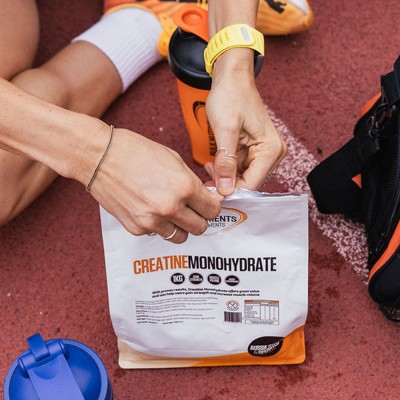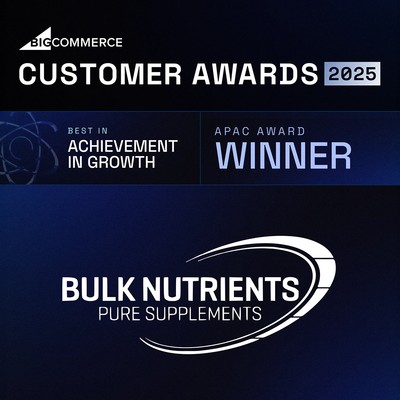What Makes a Good Product Tester?

What makes a good product tester?
If you have been a frequent user and purchaser of some of our products over the years, you may have received an invitation to partake in product testing at some stage.
Here at Bulk Nutrients, we are really proud to conduct our own research and development (R&D), for all the products we develop, blend and package, with our own internal food technician team.
This allows us to develop our products in-house, stay on top of trends, and have a direct line to those that we want to impress, our customer base. This ensures our products are as good as they possibly can be.
Product testing is not all just tasty flavours and baking success though. A lot of research goes on in the background of a new product which ranges from market research, competitor research, ingredient analysis, ingredient tasting, formulation, revisions, nutritional analysis and so much more.
As the team gets close to a final product, or product revision, we like to call on genuine users of a product to see what they think and ensure we are making the best product possible.
So, you may be wondering why we make changes, how those changes are made and how you can provide insight and be most valuable to the R&D team. We hope the following information provides some of those answers.
Why do we revise current products?
Over time, the raw ingredients we use to make your finished product can change. They might change from the supplier, they may change nutritionally, better options become available or they may simply become obsolete. This means that we have no choice but to change an ingredient and it’s beyond our control, however, this is rare.
In these cases when we look for a replacement, we always try to look for an option that is an improvement, or as close to the current as possible so the quality of the product that you have grown to love from us is maintained.
We also may find that if we have not reviewed an ingredient in some time, that new options of the raw goods have become available. It may be that manufacturing processes have changed so the quality has improved over time, or that more producers and suppliers are offering a better product than before, as demand for the raw good has increased.
The most notable example of this has been the improvements of vegan and collagen proteins in the last couple of years. As market demand increases, the quality of these ingredients must also improve to keep up, particularly if a raw good goes from being a niche product to one with mainstream popularity.
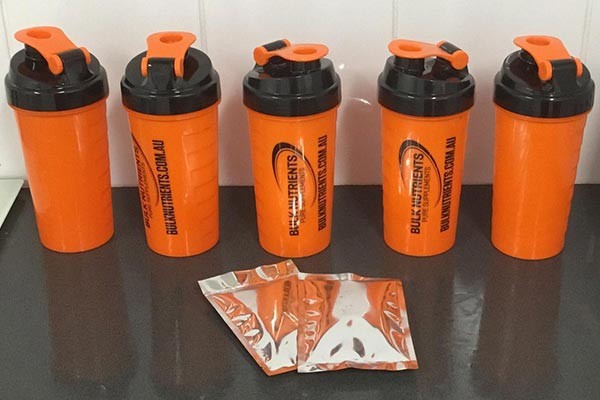
Customer feedback also plays an important role in revising current products
The other major factor for reviewing existing products are product reviews and our desire for constant improvement which is huge here at Bulk.
We use product reviews as a vital resource, this feedback and ratings help to determine if there are any common themes. Reviews not only help other customers when purchasing a product but also our R&D team who may see that instructions could be improved, taste or mixability. This feedback prompts a chain reaction to commence and an analysis to begin to see if we can make improvements in line with customer feedback.
Constant improvement
The final part: “constant improvement” can be spurred in a variety of ways. We use a calendar to check the last time a product has been reviewed and we are constantly requesting, reviewing, and evaluating a large variety of raw goods from suppliers which can improve formulations, as well as reviewing products that our competitors offer.
It isn’t always the obvious either, while flavours improve the flavour of a product, we can also use flavours to improve mouth feel, we may find certain ingredients enter the market allowing a natural or vegan form when it wasn’t available previously for that product type, or new ingredients entirely which dramatically improves how a product mixes or retains its form.

But I love the product how it is, why did you change it?
Following on from the above points, you may wonder why we would change a product if you already love it. In the rare case a supplier discontinues a raw good, there simply may be no other option, and we try to minimise the impact that a change will have on the end product as much as possible.
If this does occur, it is rare for us not to improve a product in some way, even if the change isn’t prompted by us.
In these scenarios, we always analyse several different options before we will decide on the final product and in most cases seek user feedback on the best choice.
What about when this doesn’t occur, and we make changes anyway?
This likely comes down to finding new options on the market and believing we have found an ingredient that vastly improves the result of a product, as we have already touched on.
We assess feedback, and typically if 80 - 90% of the test subjects think the new option is better, we will likely make this change as that’s an overwhelming consensus that it’s an improvement.
This is particularly so when there are nutritional gains in doing so, which (for example) may be higher levels of protein or low carbohydrates in the case of a protein.
We never make changes without thorough research, testing and result-backed reasoning. We know, unfortunately, we cannot make everyone happy all of the time, but we certainly do our best to ensure the large majority feel we have improved.
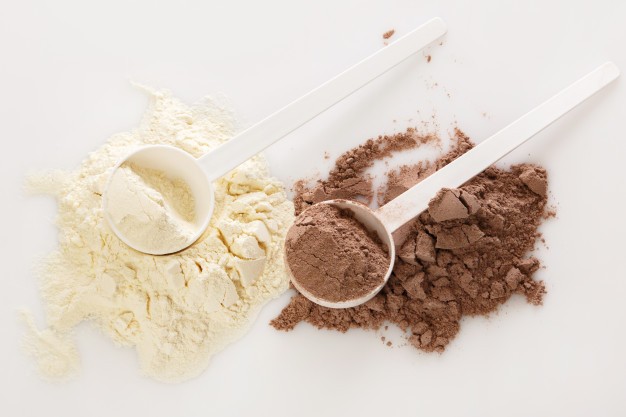
Why do you have product testers if you make the products and have the R&D team?
Our R&D team and our internal test group of staff are pretty good, and they constantly evaluate our products, competitors’ products and new raw ingredients to try and come up with the best mix for a project.
We’ll also deliberately match our test group to a specific product in the case some of them play a sport or engage in an activity that matches well with the product (SportsFuel 101 and endurance sport is a good example).
That said, when our internal testers have spent a lot of time working on a product, taste and perception can start to become a bit skewed as well as flavour preferences.
While our staff may have great taste buds and instinct to flavour a product when you increase the size of a test group the risk of bias and outlier result factor is decreased, which leads to more consistent data.
So beyond using the internal Bulk Nutrient staff as test subjects we call on genuine users of the product.
We love feedback from the first time, casual or long term customers, however those that have used our products for some time and have great brand loyalty, and likely want to help see a project succeed become the perfect choice for our product evaluations.
These are the people we most want to satisfy, hence the desire to have them (you) involved.
How can I be a good product tester?
Like all projects, some things can be very helpful and things that can be very unhelpful. The R&D teamwork on a schedule to create new products, and release deadlines and they also use your valuable feedback to make iterations to a current project. The following tips explain how you can be most valuable to the R&D team if you get involved in sample testing.
Provide your feedback in the allocated timeframe
The R&D team is always working to a deadline. Perhaps our suppliers need an answer by the end of the month, or to get the ingredient in time it must be ordered in an allocated, more urgent timeslot if we are to hit the deadline.
A delay as short as a week could have a month’s or more impact, depending on our ordering cycles. Meeting the requested timeframe from the team helps them to do their job, and also shows them that you are invested in doing yours, after all, you keenly nominated yourself to do it and we’d hate to miss your valuable feedback.
While we understand that life can get in the way, a lot of time can go into preparing samples and organising these tests, so if you find yourself often short of time to do extra tasks, then putting your hand up for evaluations may not be ideal. We know deadlines are a big drag for some people, so just consider whether you are a ‘systems person” before signing up.

Provide honest feedback
Hated one of the flavours we sent out? Don’t be scared to tell us! That’s what we want to know, and why. Perhaps you didn’t like it because you had a really bad experience with pina colada (we have all been there) so the idea of pineapple and coconut makes you green, that’s fine, let us know as it can help us to further understand you’re opinion.
Perhaps you feel the flavour is actually really good, but the sweetness is so high that you had to give it a bad rating. The more detail you provide, the better we can understand your thoughts and the more valuable your feedback becomes.
Answer all the questions
It makes the results far less useful if you skip questions, we put them in there for a reason. So, ensuring you provide some feedback in all areas when asked is very helpful. If for some reason you feel a question is not applicable, don’t just skip it, let us know why, we always like to know this and it helps us develop better survey methods into the future.

Follow the instructions
The instructions provided are typically in line with what we expect to advertise to the product for its intended use, so we want the product to taste the best it can in that form. We all know what if you add protein powder to a milk, banana, honey and cinnamon smoothie it probably tastes better, eggs also taste better mixed with flour, sugar, butter and milk, but then I am not really tasting eggs anymore. Following instructions is key.
Making the samples up and consuming them the same way is vitally important. If you make one with 100mls more liquid, it is not surprising it would then taste watery. Other factors that can impact the experience include the temperature of the water; using the right temperature will impact the mixability and we can assure you that lukewarm water doesn’t make proteins taste great either, as well as the setting you taste in.
These finer details may not seem like a big deal but when results are close (as they often are) controlling these variables is necessary if you want to provide great feedback.
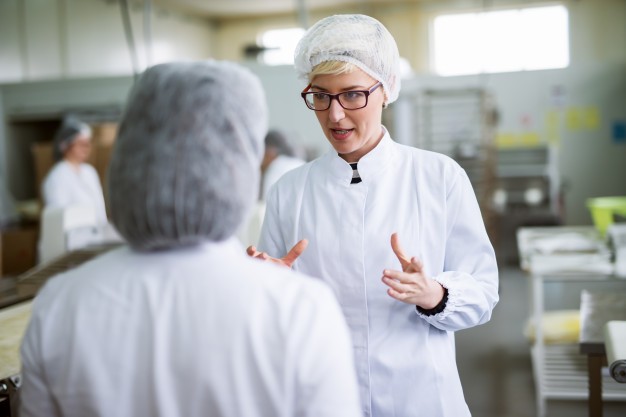
Set up a good location for tasting
Make sure your location and timing for tasting are ideal. It’s not a good idea to do taste testing if you are rushed, thirsty, or have just brushed your teeth. All these things can impact your tasting experience. opt for a time such as mid-morning, not after a coffee or breakfast and when you have some uninterrupted time to do the testing and consider your results.
While we love to have feedback from multiple people in some situations, don’t invite others into the tasting until you have a really clear opinion of your own, that way you avoid bias and influenced opinion.
You may not think that someone else’s opinion will sway your own, but we promise, it will.
Take your time
As mentioned above, taking your time to taste test is important. Sipping each protein, going back again, and even a third time is very acceptable and normal in the tasting.
If tasting multiple samples at a time, the aftertaste of one can impact the next, so a glass of water may help clear the palate in-between. Gulping large sips can also impact taste as we have more taste buds on the tongue. Don’t feel pressure to have your tastings done in 5 minutes either. So, if you are feeling thirsty and want to guzzle down your shake, it may not be the best time to start your analysis.

So, do you think you have what it takes to be involved in Product Testing?
We cannot guarantee we will have samples and emails to you as soon as next week, but we are always considering our range and new products.
If you would like to be added to the list of product testers and feel after reading this, you’d make a great candidate, you can register your interest through the links below;
Dairy Protein Testers - Survey Form
Non-dairy and plant-based Protein Testers - Survey Form
Amino Based Product Testers - Survey Form
Pre workout/stimulants and cognitive Product Testers - Survey Form

Formerly working as part of Bulk Nutrients R&D team for many years, Nicole Frain is a food scientist, personal trainer and a professional international cyclist.
She's applied her learnings at the national stage for bodybuilding, and has several qualifications in Food Science, Nutrition and Business!
More about Nicole Frain


